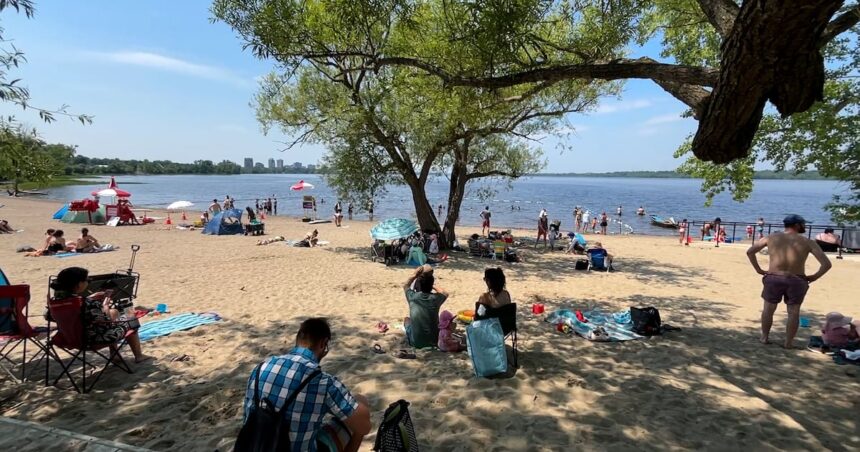As the mercury rises across Ottawa, local health officials are stepping up efforts to ensure residents stay safe while enjoying the summer months. The combination of extreme heat, increased outdoor activities, and higher exposure to insects creates unique health challenges that require proactive measures.
“Ottawa summers can be deceptively dangerous,” says Dr. Vera Etches, Ottawa’s Medical Officer of Health. “We’re encouraging everyone to take simple precautions that can prevent serious health issues.”
With temperatures consistently reaching the high 20s and occasionally surpassing 30 degrees Celsius, Ottawa Public Health (OPH) has issued comprehensive guidelines focusing on three key areas: heat safety, water safety, and protection from insect-borne illnesses.
Heat safety remains a primary concern as climate change drives more frequent extreme temperature events. OPH recommends scheduling outdoor activities during cooler parts of the day, typically before 10 a.m. or after 4 p.m. when UV rays are less intense. Officials also emphasize the importance of staying hydrated by drinking water regularly, even before feeling thirsty.
“Many heat-related illnesses occur because people don’t recognize the early warning signs,” explains Nicole Hurtubise, a public health nurse with OPH. “Headaches, dizziness, and fatigue can quickly progress to more serious conditions if ignored.”
For parents and caregivers, OPH stresses never leaving children or pets unattended in vehicles, even for short periods. Interior temperatures can rise to dangerous levels within minutes, even with windows partially open.
Water safety takes on particular significance in a city blessed with numerous water bodies, including the Ottawa River, Rideau Canal, and various public pools. Last year, Ottawa recorded five drowning incidents, prompting renewed emphasis on supervision and proper use of life jackets.
“Always maintain constant visual contact with children near water,” says James Wilson, water safety coordinator with the City of Ottawa. “It takes just seconds for a tragedy to occur, and drowning is often silent—not the splashing, calling for help scenario many people imagine.”
The city’s supervised beaches and pools offer safer swimming options, with trained lifeguards present during designated hours. However, officials remind residents that adult supervision remains essential even at these locations.
Perhaps less obvious but equally important is protection against insect-borne diseases. Ottawa has seen fluctuating rates of Lyme disease, transmitted by blacklegged ticks, and West Nile virus, carried by mosquitoes.
“Prevention is key when it comes to tick and mosquito exposure,” says Dr. Etches. “Using appropriate repellents, wearing light-colored clothing that covers exposed skin, and performing regular tick checks after spending time in wooded or grassy areas significantly reduces your risk.”
For tick removal, OPH recommends using fine-tipped tweezers to grasp the tick as close to the skin as possible, then pulling upward with steady pressure. The area should be cleaned afterward with soap and water or alcohol.
The city maintains an active surveillance program for West Nile virus, regularly testing mosquito pools throughout the summer months. Residents can help reduce mosquito breeding grounds by eliminating standing water around their properties.
For vulnerable populations, including older adults and those with chronic health conditions, OPH has implemented an outreach program offering personalized risk assessments and safety planning.
“We’re particularly concerned about seniors living alone who may not have regular contact with others during heat waves,” Hurtubise notes. “Our community partners help us identify and reach these individuals with cooling center information and regular wellness checks.”
Climate scientists suggest Ottawa’s summers will continue trending hotter in coming years, making these safety measures increasingly vital. The city has responded by extending the hours of cooling centers during extreme heat events and improving public access to water fountains in parks and recreational areas.
Local resident Maria Gonzalez, a mother of three who frequently visits Andrew Haydon Park with her family, appreciates the city’s proactive approach. “The new water bottle filling stations make it much easier to keep everyone hydrated during our park days,” she says. “And the heat warning notifications on my phone help me plan safer outdoor activities for the kids.”
As summer activities peak, Ottawa Public Health continues to provide updates through their website and social media channels, offering real-time information on heat warnings, water quality at public beaches, and areas with higher tick activity.
By embracing these safety measures, Ottawa residents can enjoy all the pleasures of summer while minimizing health risks—creating memorable experiences rather than preventable emergencies.







